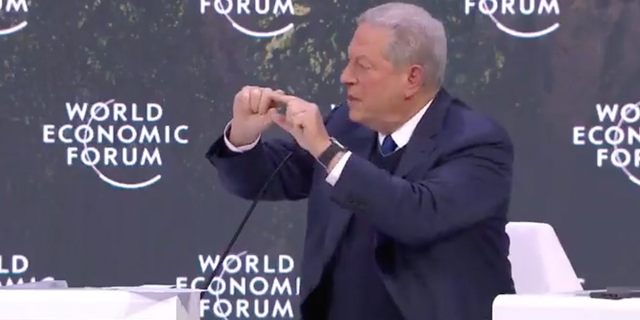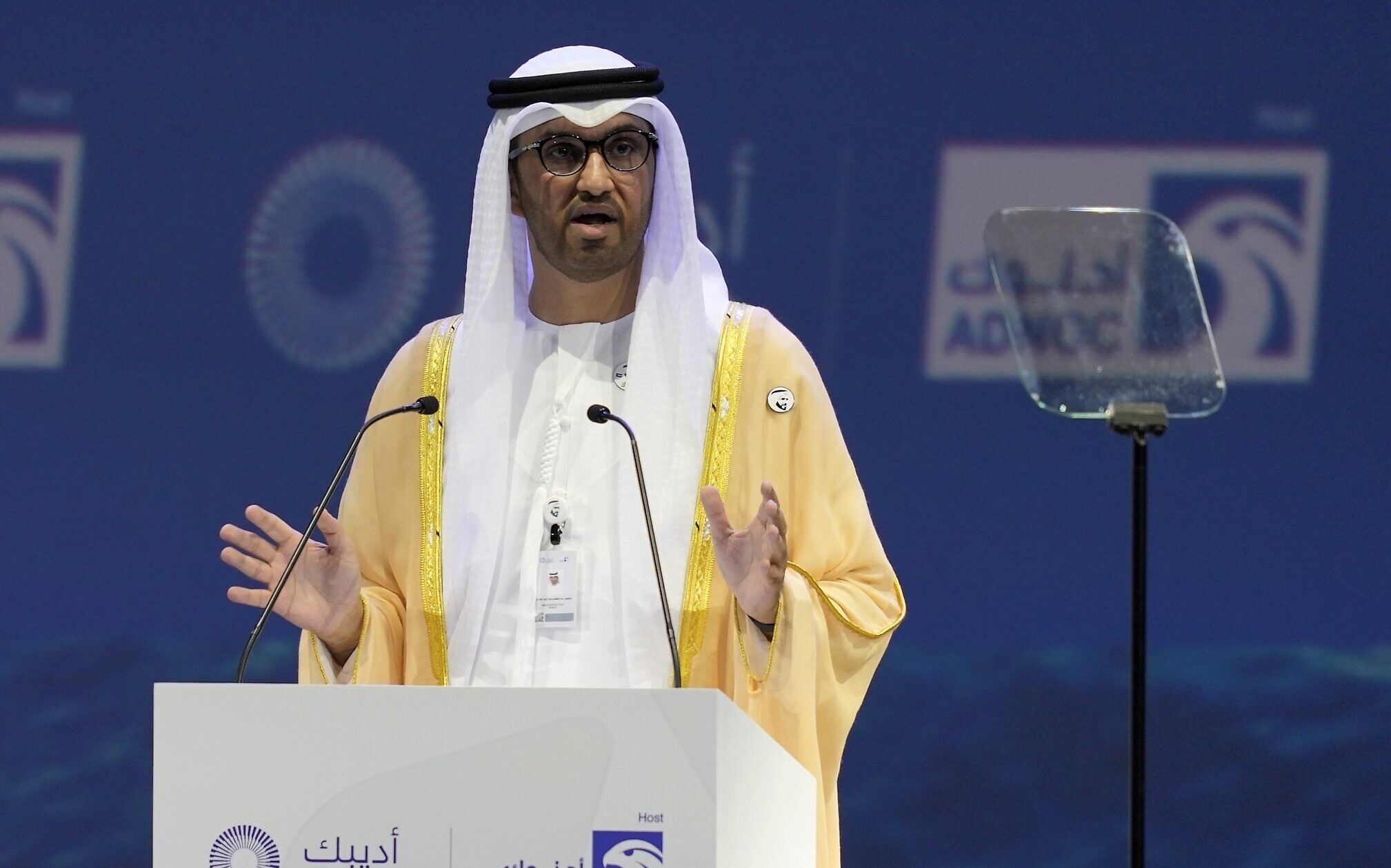Way, to go, Al Gore!
Footnote: I testified before then-Rep Gore and then-Rep. Marilyn Lloyd on Oak Ridge Y-12 nuclear weapons plant pollution on July 11, 1983, calling for criminal prosecution of Union Carbide and federal officials responsible for mercury pollution -- biggest mercury pollution event in world history, which DOE declassified at request of our Appalachian Observer newspaper on May 17, 1983. More here.
Latest from The Guardian:
The data was produced for the Guardian by Urgewald, a German NGO, from its Gogel database. This is based on data from Rystad Energy, the industry standard source but not available to the public, and accessed in September 2022.
In November 2022, Adnoc announced a $150bn investment over five years to enable an “accelerated growth strategy” for oil and gas production. Independent experts rate the UAE’s climate targets and policies as “highly insufficient”, while the UN secretary general recently called for the “ceasing [of] all licensing or funding of new oil and gas”.
Recent statements by Al Jaber also appear difficult to reconcile with Adnoc’s huge plans for new oil and gas production. At a “Road to Cop28” conference in Dubai on 15 March, Al Jaber said: “We [the world] have to rapidly reduce emissions.” The following day, at an International Energy Agency roundtable event, he said: “Oil and gas companies need to align around net zero.” In February, Al Jaber said: “We in the UAE are not shying away from the energy transition. We are running towards it.”
Just 10% of Adnoc’s expansion is compatible with the IEA’s scenario for the world to reach net zero carbon emissions by 2050. The IEA said the 2050 goal requires no new oil and gas projects to be approved after 2021, but 90% of the oil and gas expansion being planned by Adnoc were advanced after this date and would have to stay in the ground to be compatible.
Adnoc’s “overshoot” of the IEA net zero scenario is therefore 6.8 BBOE, the third largest worldwide. Saudi Aramco has the largest overshoot, with 11.4 BBOE, and QatarEnergy is second with 7.6 BBOE.
The short-term expansion plans included in the analysis are fields in which production and operation plans are being developed, the final investment decision has been taken or wells are being drilled before the start of production. Fields in these categories normally begin pumping oil and gas within seven years. The Gogel database includes 901 companies that explore for and produce oil and gas, and covers 97% of short-term expansion plans.
Some of the largest developments that are not in line with the IEA net zero scenario will take place as part of the Upper Zakum project, off the coast of the UAE. Adnoc describes the extension of production in the Upper Zakum field as a “mega-project” and the “second-largest offshore oilfield in the world”. It involves “the construction of four artificial islands in shallow water [which] can accommodate 450 wells, 90 platforms, as well as drilling rigs, processing facilities, and infrastructure,” Adnoc said.
Independent experts at Climate Action Tracker have concluded that the UAE’s fossil fuel expansion plans are not consistent with limiting global heating to 1.5C and rate the UAE’s climate targets and policies as “highly insufficient”. The recent major report from the Intergovernmental Panel on Climate Change, approved by all the world’s governments, warned that the carbon emissions from the world’s already existing fossil fuel projects would alone be enough to drive the climate past 1.5C.
Nils Bartsch at Urgewald said: “The new data shows the appointment of Sultan Al Jaber as president of Cop28 is a mockery of Cop as an institution. Appointing an oil and gas executive as Cop president displays a complete lack of awareness of the problems at hand. It is a fatal political signal to the world.”
“The climate emergency needs actions, not words,” said Tasneem Essop, executive director of Climate Action Network International. “While Al Jaber has been calling for bold actions to stay below 1.5C, his deeds do not match his rhetoric. His conflicting role as CEO of Adnoc begs the question: is Al Jaber able to play an objective role in securing an ambitious outcome at Cop28, which makes it clear there can be no new fossil fuel projects?”
Essop, and other campaigners, have called for Al Jaber to resign from his Adnoc role, with some comparing his presidency of Cop28 as “putting the head of a tobacco company in charge of negotiating an anti-smoking treaty”. Others involved in UN climate talks have been less frank, given the likely need to work with Al Jaber in future.
Laurence Tubiana, a former French diplomat and leading architect of the Paris climate agreement in 2015, said: “All countries and energy companies must heed the IEA and the IPCC’s warnings or risk compromising decades of diplomatic efforts as well as our collective security on this planet.
“The Cop28 presidency bears huge responsibility to show the way in bridging the gap between the Paris goals and today’s insufficient climate plans,” she said. ”As a major oil exporter, this is the UAE’s chance to demonstrate what post-fossil leadership looks like.”
Christiana Figueres, the UN’s top climate official when the Paris deal was signed, said: “We know that the UAE is an economy based on hydrocarbons and we also know there is now no room for new fossil fuels. While it is not easy for Dr Sultan, it is important for the president of every Cop to be science-driven and I hope the UAE will take the leadership opportunity this presents.”
A spokesperson for Adnoc said: “The world requires a diverse mix of solutions to accelerate the energy transition while ensuring sustainable economic development and meeting growing global energy demand. With the world’s population expected to grow to more than 8.5 billion by 2030, we are investing in capacity to enable us to meet future demand with some of the least carbon-intensive barrels available.
“Adnoc will remain a responsible and reliable supplier of energy, laser focused on reducing the carbon intensity of every barrel it produces and continue to contribute to global emissions’ reduction through its expansion into new energies,” the spokesperson said. The carbon intensity of oil or gas is the CO2 emitted per unit in producing the fuel and does not include the far greater emissions generated when the fuel is burned.
Al Jaber is also UAE’s special envoy for climate change, but a request for comment did not receive a response. He is also the founding CEO of Masdar, a government-owned renewable energy company. It says it is one of the largest developers of renewable energy projects in the world and has invested more than $30bn (£24.2bn) in mainly solar and wind power projects since 2006.
Alden Meyer at the thinktank E3G, who has attended the UN climate talks since they began in 1991, said Al Jaber’s presidency of Cop28 and CEO role at Adnoc “clearly does pose a conflict of interest”. Meyer said: “Perhaps Dr Al Jaber is positioned to be the one that finally pushes the oil and gas industry to get with the [clean energy] transition. But I’m sceptical.”


No comments:
Post a Comment